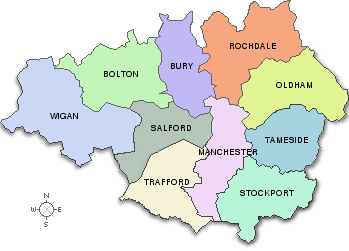 This week it was announced that an agreement for devolution within the Greater Manchester Combined Authority has been reached with central government. The agreement, reached with the Chancellor who has called for a 'Northern Powerhouse' to maximise the economic potential of the north - and building on the work of the Greater Manchester Combined Authority (GMCA) established in 2011 - will give greater powers to the combined authority working in partnership with a directly-elected Mayor. The agreement, which will need to be ratified by all ten Greater Manchester Councils in due course, signals a step change in the willingness of government to devolve power within England. Greater Manchester has long been recognised as being at the forefront of the debate with government on devolution in England. This is the first such deal struck with a city region and this is a recognition of the fact that Greater Manchester has established better and stronger collaborative arrangements than any other city region within the UK. It is hoped that these will open up new opportunities for increasing economic growth and improving the quality of life of Greater Manchester residents by replacing an over-centralised national model, imposing ‘one size fits all’ solutions – with greater local control over certain budgets and powers. For example, they make promises to unlock huge public transport improvements and help tens of thousands of Greater Manchester residents into work. Under the settlement, a directly-elected Mayor for Greater Manchester will be created. The first Greater Manchester Mayoral elections are expected to take place in 2017. Some powers will only be devolved to Greater Manchester once the Mayor is in place but a significant number of initiatives will be taken, starting in the New Year, in advance of the election of the Mayor. These will include the establishment of a new funding deal which will enable Greater Manchester to invest in further extension and strengthening of the city regions transport infrastructure. The deal is worth £900 million over the next 30 years. Powers to be devolved to Greater Manchester include:
The existing Police and Crime Commissioner’s role will also be merged with the Greater Manchester Mayor’s role. Indeed the Mayor of Greater Manchester is likely to get even more powers than the London Mayor with control over it's health and social care budget. However, not everyone is convinced about the announcement. Geraint Johnes (Professor of Economics in the Department of Economics, Lancaster University) has said that in his opinion these powers are modest and do not offer the promise of any real capability to stimulate economic development. But what does all this mean for Social Work? Firstly, GMCA and Greater Manchester Clinical Commissioning Groups will be invited to develop a business plan for the integration of health and social care across Greater Manchester, based on control of existing health and social care budgets. In the document published jointly by HM Treasury and GMCA specific mention is given to making use of of existing budgets and including specific targets for reducing pressure on A&E and avoidable hospital admissions. It says that the government will also work with local government and NHS England to give greater certainty about health and care funding settlements. This includes by working towards multi-year allocations at the next Spending Review. It assures us that the Treasury will support a Greater Manchester-wide health and social care strategy which fairly and accurately reflects the priorities of the full range of NHS and social care stakeholders, including acute trusts. What it does not say is specifically what services in the new world will look like. It say that agreement from Greater Manchester Clinical Commissioning Groups will be required to implement any plan for services and budgets which are their responsibility. Consequently, we will have to wait for a peek of the proposed business plan mentioned above to give us any idea of what this really means for social work. I am sure that it is little surprise to those working in the sector that greater emphasis has been placed on health services in the published literature thus far. What it does say, however, is that the Treasury has agreed to work with Greater Manchester on their early years pilot, with a focus on providing advice and support in ensuring effective pilot design and the creation of a robust evaluation framework. The treasury will work with Greater Manchester on engaging with schools to support early intervention and to make the case for this more widely across Greater Manchester. This is good news for the vulnerable children that may otherwise go unseen by professionals in the Early Years. I will of course keep you posted as further details are released. In the meantime, if you are interested in reading the agreement in it's entirety I have uploaded a copy to the Guidance section of the website.
0 Comments
Your comment will be posted after it is approved.
Leave a Reply. |
AuthorI'm a Qualified Children's Social Worker with a passion for safeguarding and family support in the UK. Archives
August 2016
Categories
All
|

